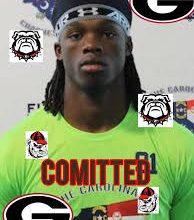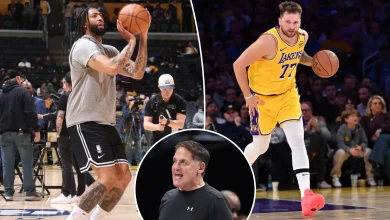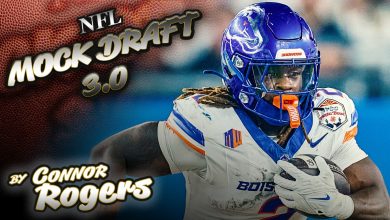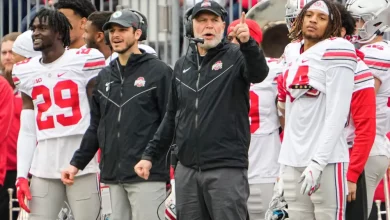Notre Dame football coach Marcus Freeman still believes ‘culture wins’ at any level
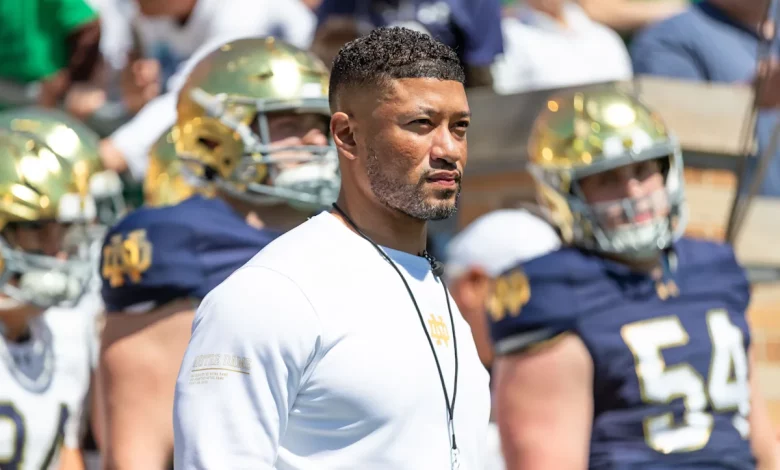
In the world of college football, where talent, strategy, and preparation dominate conversations, one principle consistently stands out for Notre Dame head coach Marcus Freeman: culture wins. This simple yet profound philosophy guides Freeman’s leadership approach and shapes the Notre Dame football program’s identity. From recruiting to practice, from game day to player development, Freeman emphasizes that building and maintaining a strong culture is the foundation for sustained success — not just at the collegiate level, but across all levels of football.
The Meaning of “Culture Wins”
When Marcus Freeman says “culture wins,” he is referring to the collective mindset, values, habits, and relationships that define a team. Culture encompasses how players, coaches, and staff interact, how they handle adversity, and how they approach their work every single day.
It is the intangible fabric that holds a team together and propels it forward. In Freeman’s eyes, talent alone isn’t enough. Without a positive, accountable, and resilient culture, even the most talented teams can falter under pressure.
Freeman’s belief is supported by countless examples throughout sports history where teams with lesser talent but superior culture have outperformed more talented yet disjointed opponents.
Building Culture: A Priority for Freeman
Since taking over as Notre Dame’s head coach, Marcus Freeman has prioritized culture-building as a central pillar of the program’s philosophy. His focus is on creating an environment where players feel valued, challenged, and supported — where accountability is embraced and where every individual buys into a shared vision.
Freeman’s approach to culture is proactive and intentional. It starts with recruiting players who not only have athletic ability but also fit the program’s character standards. He looks for players who are coachable, hardworking, and committed to growth both on and off the field.
Beyond recruitment, Freeman cultivates culture through clear communication, setting expectations early, and leading by example. His open-door policy and authentic leadership style foster trust and respect, encouraging players to take ownership of their roles.
Culture and Performance: The Notre Dame Example
The impact of culture on performance is evident in Notre Dame’s trajectory under Freeman’s leadership. Despite the intense pressures and high expectations that come with coaching a historic program, Freeman has maintained a steady focus on culture as the engine driving success.
This focus has manifested in several ways:
- Resilience in Adversity: Notre Dame has demonstrated the ability to bounce back from setbacks, a hallmark of strong culture. Whether overcoming injuries or tough losses, the team’s collective mindset remains positive and forward-looking.
- Consistency: While individual games vary, the team’s preparation and effort remain consistent, reflecting the discipline instilled through culture.
- Leadership Development: Freeman emphasizes developing leaders within the team, empowering players to hold each other accountable and lead by example.
These elements create an environment where players are motivated to perform at their best and work collaboratively toward shared goals.
Culture Beyond the College Level
Freeman’s assertion that “culture wins” extends beyond the collegiate ranks. He believes the same principles apply at all levels of football — from youth leagues to the professional ranks.
At youth and high school levels, cultivating a positive culture teaches young athletes the values of teamwork, respect, and perseverance. These lessons not only improve on-field performance but also build character and life skills.
At the professional level, culture often distinguishes championship teams from those that fall short. Coaches and players who embrace a winning culture tend to have greater cohesion, focus, and adaptability.
Freeman’s holistic view highlights that culture is the backbone of any successful football program, regardless of age or level of play.
The Role of Leadership in Shaping Culture
A critical component of establishing culture is leadership — both from coaches and players. Freeman understands this deeply and works to cultivate leadership at all levels.
As a coach, Freeman leads with authenticity and vulnerability, sharing his experiences and fostering open dialogue. This approach creates psychological safety, encouraging players to express themselves and take risks.
Freeman also identifies and mentors team leaders, equipping them with the tools and confidence to influence their peers positively. By decentralizing leadership, the culture becomes self-sustaining and resilient.
Culture as a Recruiting Advantage
In today’s competitive recruiting landscape, culture has become a key selling point. Players want to join programs where they can grow, be supported, and compete in a positive environment.
Freeman leverages Notre Dame’s strong culture to attract recruits who align with the program’s values. He knows that recruiting the right players for the culture is as important as recruiting for talent.
This approach pays dividends as players recruited for culture fit often demonstrate higher levels of commitment, resilience, and teamwork.
Examples of Culture-Driven Success
Numerous teams across sports exemplify the power of culture. For instance, the New England Patriots under Bill Belichick have long been heralded for their culture of discipline, accountability, and selflessness, which has led to sustained success.
Similarly, the 2004 Boston Red Sox broke a decades-long championship drought by building a culture centered on belief, preparation, and unity.
At Notre Dame, Freeman aspires to create a comparable culture that not only wins games but also shapes men of character prepared for life beyond football.
Challenges in Maintaining Culture
Building culture is only half the battle; maintaining it requires continuous effort. Challenges such as player turnover, external distractions, and the pressures of winning can test a program’s culture.
Freeman acknowledges these challenges and has instituted measures to reinforce culture regularly. These include ongoing team-building activities, consistent communication of core values, and holding everyone accountable regardless of status.
By embedding culture into daily routines and rituals, Freeman ensures it remains a living, breathing part of the program.
Culture’s Impact Off the Field
Beyond wins and losses, culture influences how players grow as individuals. Freeman’s commitment to culture means fostering an environment where players pursue academic excellence, community involvement, and personal development.
Notre Dame players are encouraged to excel in the classroom, engage in service projects, and prepare for careers beyond football. This holistic approach to development reflects Freeman’s belief that culture wins in all aspects of life.
Player Testimonials on Culture
Current and former Notre Dame players often credit the program’s culture for their growth and success. They speak of a family-like atmosphere, high expectations balanced with support, and leadership that challenges them to improve daily.
Players highlight how culture has helped them overcome adversity, build lifelong friendships, and prepare for professional careers.
Looking Ahead: Culture as Notre Dame’s Cornerstone
As Notre Dame football moves forward, Marcus Freeman’s mantra — “culture wins” — will remain at the core. It’s a philosophy that transcends trends, tactics, and personnel changes.
Freeman’s leadership ensures that culture is not a buzzword but a lived experience that permeates every aspect of the program. This steadfast focus positions Notre Dame to compete at the highest levels while developing men of integrity and purpose.
In the high-stakes world of college football, where pressure is immense and expectations lofty, Marcus Freeman’s belief that “culture wins” offers clarity and direction. Culture provides the foundation upon which talent thrives, adversity is overcome, and championships are won.
At Notre Dame and beyond, Freeman’s commitment to culture underscores a timeless truth: success is built not just on skill, but on the collective heart, mind, and spirit of a team.
By prioritizing culture, Marcus Freeman is not only shaping a football program but also influencing lives — proving that at any level of football, culture truly wins.



